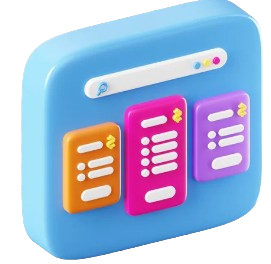𝐇𝐨𝐰 𝐭𝐨 𝐅𝐢𝐧𝐝 𝐚𝐧𝐝 𝐋𝐞𝐚𝐫𝐧 𝐟𝐫𝐨𝐦 𝐓𝐨𝐩 𝐌𝐞𝐧𝐭𝐨𝐫𝐬 (𝐄𝐯𝐞𝐧 𝐈𝐟 𝐘𝐨𝐮 𝐌𝐚𝐲 𝐍𝐞𝐯𝐞𝐫 𝐌𝐞𝐞𝐭 𝐓𝐡𝐞𝐦)
"If I have seen further, it is by standing on the shoulders of giants." - 𝗜𝘀𝗮𝗮𝗰 𝗡𝗲𝘄𝘁𝗼𝗻
Apprenticeship and mentorship are the most effective and impactful knowledge transfer systems ever known to man.
As an individual aspiring growth in different areas of your life, most especially in business, it is crucial to take it as a critical success factor (CSF) for 2024.
Here is why:
- 75% of small businesses that receive mentoring survive for 5 years or more, compared to just 50% of non-mentored businesses (Association for Talent Development). 𝙏𝙝𝙞𝙨 𝙨𝙝𝙤𝙬𝙨 𝙩𝙝𝙚 𝙞𝙢𝙥𝙖𝙘𝙩 𝙢𝙚𝙣𝙩𝙤𝙧𝙞𝙣𝙜 𝙘𝙖𝙣 𝙝𝙖𝙫𝙚 𝙤𝙣 𝙗𝙪𝙨𝙞𝙣𝙚𝙨𝙨 𝙨𝙪𝙧𝙫𝙞𝙫𝙖𝙡 𝙧𝙖𝙩𝙚𝙨.
- In sub-Saharan Africa, 70% of entrepreneurs who have mentors say they have a better understanding of how to grow their companies since they started partnering with a mentor
(Cherie Blair Foundation for Women). 𝙈𝙚𝙣𝙩𝙤𝙧𝙨𝙝𝙞𝙥 𝙡𝙚𝙖𝙙𝙨 𝙩𝙤 𝙞𝙢𝙥𝙧𝙤𝙫𝙚𝙙 𝙗𝙪𝙨𝙞𝙣𝙚𝙨𝙨 𝙠𝙣𝙤𝙬𝙡𝙚𝙙𝙜𝙚.
- 86% of African entrepreneurs with mentors say they are better able to identify new business opportunities (Cherie Blair Foundation for Women). 𝙈𝙚𝙣𝙩𝙤𝙧𝙨𝙝𝙞𝙥 𝙝𝙚𝙡𝙥𝙨 𝙨𝙥𝙤𝙩 𝙣𝙚𝙬 𝙤𝙥𝙥𝙤𝙧𝙩𝙪𝙣𝙞𝙩𝙞𝙚𝙨..
- In Nigeria, 78% of mentored female entrepreneurs reported increased self-confidence in their business skills (Cherie Blair Foundation for Women). 𝙈𝙚𝙣𝙩𝙤𝙧𝙨𝙝𝙞𝙥 𝙗𝙪𝙞𝙡𝙙𝙨 𝙘𝙤𝙣𝙛𝙞𝙙𝙚𝙣𝙘𝙚.
- Nigerian businesses with mentors experience 112% higher business revenues than non-mentored businesses (Afterschool Center for Career Development). 𝙈𝙚𝙣𝙩𝙤𝙧𝙨𝙝𝙞𝙥 𝙗𝙤𝙤𝙨𝙩𝙨 𝙧𝙚𝙫𝙚𝙣𝙪𝙚𝙨.
- Mentored entrepreneurs in Nigeria have operations that are 20% larger in terms of number of employees compared to non-mentored entrepreneurs (Afterschool Center for Career Development). 𝙈𝙚𝙣𝙩𝙤𝙧𝙨𝙝𝙞𝙥 𝙡𝙚𝙖𝙙𝙨 𝙩𝙤 𝙗𝙪𝙨𝙞𝙣𝙚𝙨𝙨 𝙜𝙧𝙤𝙬𝙩𝙝 𝙖𝙣𝙙 𝙟𝙤𝙗 𝙘𝙧𝙚𝙖𝙩𝙞𝙤𝙣.
- Apprenticeships allow for tacit knowledge transfer. Tacit knowledge refers to the hands-on skills, expertise, and insights masters gain through years of experience. This type of wisdom is difficult to codify and can best be learned through personal interaction and observation. 𝘼𝙥𝙥𝙧𝙚𝙣𝙩𝙞𝙘𝙚𝙨𝙝𝙞𝙥𝙨 𝙖𝙡𝙡𝙤𝙬 𝙩𝙝𝙞𝙨 𝙩𝙧𝙖𝙣𝙨𝙛𝙚𝙧 𝙩𝙝𝙧𝙤𝙪𝙜𝙝 𝙙𝙞𝙧𝙚𝙘𝙩 𝙩𝙧𝙖𝙞𝙣𝙞𝙣𝙜 𝙖𝙣𝙙 𝙢𝙚𝙣𝙩𝙤𝙧𝙞𝙣𝙜.
According to the National Bureau of Statistics, the informal sector, which includes most of the apprenticeship activities, contributed 65.1% of the GDP and 80.9% of the employment in Nigeria in 2019.
The Centre for the Study of the Economies of Africa, the Igbo apprenticeship system has helped to reduce poverty, increase income, and create employment opportunities for the Igbos and other ethnic groups in Nigeria.
The study estimates that the average annual income of an Igbo apprentice is about 1.2 million naira, while the average annual income of a non-Igbo apprentice is about 0.8 million naira.
Seeing the obvious impact of apprenticeship and mentorship in the life of individuals, especially entrepreneurs, it is therefore critical to know how to choose your mentors, what to learn from your mentors, and how to learn from your mentors.
- 𝐇𝐨𝐰 𝐭𝐨 𝐂𝐡𝐨𝐨𝐬𝐞 𝐘𝐨𝐮𝐫 𝐌𝐞𝐧𝐭𝐨𝐫𝐬
In choosing your mentors, it's fundamental that you access your needs to determine specific areas where you need guidance, so you can find mentors who specialize in those domains. For example, finance, marketing, leadership, etc.
It is also important you look for relevant experience. Choosing mentors who have successfully run businesses similar to yours or have expertise in your industry will be a huge advantage. 𝗥𝗲𝗹𝗲𝘃𝗮𝗻𝘁 𝗲𝘅𝗽𝗲𝗿𝗶𝗲𝗻𝗰𝗲 𝗶𝘀 𝗸𝗲𝘆.
𝐍𝐨𝐭𝐞 - In choosing a business mentor, individuals that have successfully ran identical or similar businesses like yours are considered primary mentors and should be your unequivocal preference above individuals who are successful in businesses outside of your business industry category otherwise considered as secondary mentors.
𝙏𝙝𝙞𝙨 𝙖𝙡𝙨𝙤 𝙖𝙥𝙥𝙡𝙞𝙚𝙨 𝙩𝙤 𝙥𝙧𝙤𝙛𝙚𝙨𝙨𝙞𝙤𝙣𝙖𝙡 𝙙𝙚𝙫𝙚𝙡𝙤𝙥𝙢𝙚𝙣𝙩.
- 𝐖𝐡𝐚𝐭 𝐭𝐨 𝐋𝐞𝐚𝐫𝐧 𝐟𝐫𝐨𝐦 𝐘𝐨𝐮𝐫 𝐌𝐞𝐧𝐭𝐨𝐫𝐬
Having successfully chosen your mentors, it is expedient that you make the most out of their precious time. Most individuals do not have a structured system of learning from their mentors and this negatively impacts the mentoring process in most cases.
To effectively leverage your mentors' experience, learning these four sets of systemic wisdom from your mentors is crucial: they are mindsets, value sets, skill sets, and tool sets.
𝐌𝐈𝐍𝐃𝐒𝐄𝐓: Understanding the mindset that powers the results your mentors have is the first key to your transformation.
Basically, when engaging with your mentor personally or through his material, you should be looking out for how he reasons.
Gaining insights into the mental models, thinking patterns, and problem-solving approaches your mentor uses to drive business success is the foundation for success.
This is because you have been exposed to proven mindsets that guarantee results.
- 𝐂𝐚𝐬𝐞 𝐒𝐭𝐮𝐝𝐲: When you see Emeka Nobis direct and shoot a professional picture of him with pants (trousers) down in a WC (restroom) with his book in his hand, it's not just a marketing stunt. It is a preview of how he thinks. He is always questioning human behavior and age-long religious and cultural beliefs.
So if he is your mentor, it is safe to say he is a curiously open-minded individual that questions and dares the norm just to deduce human behavior and outcomes. In short, he is an adventurer that doesn't see limitations but exploration.
The question is, how can those mind sets facilitate your own outcomes?
𝐕𝐀𝐋𝐔𝐄 𝐒𝐄𝐓𝐒 : You make decisions, and your decisions make you. If your mentor has made decisions so far that have amounted to his success, it is in your best interest to understand what guides his decision making, especially in business.
A value set is a set of principles, ethics, and standards that guide the decisions and actions of an organization or an individual.
A value set reflects the purpose, vision, and mission of the entity and influences the relationships with customers, employees, and stakeholders.
When you understand the core values and principles that guide your mentor's leadership and business practices, you may as well have learned how to failure-proof decisions in your industry.
- 𝐂𝐚𝐬𝐞 𝐒𝐭𝐮𝐝𝐲: When you see John Obidi consistently pioneering new media and other creative ways AI and technology can improve businesses, instead of being overwhelmed by his intellectual prowess and sagacity, if he is your mentor, you should take note of some of his core values like research and innovation.
He delights in engaging in extensive research that drives discoveries of new ways and technology tools that improve lives and businesses. He deciphers where the industry is going, he gets there fast enough, and then facilitates bringing others there through knowledge transfer sessions like the Night School or paid private sessions.
The question is, how can those value sets facilitate your own outcomes?
𝐒𝐊𝐈𝐋𝐋 𝐒𝐄𝐓𝐒: Skill set refers to the specific abilities, competencies, and expertise that you need to perform effectively in your role and industry.
It includes both technical skills and soft skills such as communication, problem-solving, leadership, and teamwork. Learning the key hard and soft skills your mentor has developed that enable effective management, operations, and decision-making is essential because you can cultivate similar skills and achieve equally similar results.
- 𝐂𝐚𝐬𝐞 𝐒𝐭𝐮𝐝𝐲: When you see Nelly Agbogu audaciously host multiple trade-fairs across Nigeria.
Instead of pondering on the stress she goes through or imagining how much she makes, if she is your mentor, you should rather take note of the skill sets that power that result.
For example, negotiation, delegation, partnership, marketing, and hiring the right vendors and personnel. If they got her results, they will get you similar results over time.
𝐓𝐎𝐎𝐋 𝐒𝐄𝐓𝐒 : A toolset refers to the tools, technologies, methodologies, and resources that you can leverage to accomplish tasks, solve problems, and achieve goals.
These are the systems, techniques, and frameworks your mentor uses to structure and grow their business. If you are akin to them, you have landed yourself tools to replicate their success.
- 𝐂𝐚𝐬𝐞 𝐒𝐭𝐮𝐝𝐲: Instead of being intimidated by the astounding results Chioma Ifeanyi-Eze gets with her signature program Data Entry Academy (DEA), if she is your mentor, your focus should be on the tools she uses to achieve those results.
Countlessly she has mentioned tools including but not limited to Canva, Teachable, landing page builders, Facebook ads, email marketing solutions, and so on as her weapon of mass marketing in getting her results. Having discovered these tools, your goal should be mastering and applying the same tools for your business growth.
- 𝐇𝐨𝐰 𝐭𝐨 𝐋𝐞𝐚𝐫𝐧 𝐟𝐫𝐨𝐦 𝐘𝐨𝐮𝐫 𝐌𝐞𝐧𝐭𝐨𝐫𝐬
First, it's worthy to note that the relationship between you and your mentor should be symbiotic, that is, it should be both backward and forward compatible.
In essence, a platform for value and knowledge exchange. Making your relationships with your mentors mutually beneficial keeps you at an advantage in gaining invaluable knowledge, experience, and wisdom needed to grow your business.
However, if he is a mentor you may never have met due to inaccessibility or lack of relationship, the following steps below can help you learn as much as possible with little or no access to them:
- Begin by ensuring that your mentor suits your business needs and has successfully run similar businesses to yours.
- Listen, watch and read every material they have, from books, podcasts, videos, posts they have ever made or will make.
- If they are active on social media, intelligently engage their comment section and subsequently seek ways to be valuable to them.
- Lastly, when you engage their content and materials, look for their 𝐦𝐢𝐧𝐝𝐬𝐞𝐭𝐬, 𝐯𝐚𝐥𝐮𝐞 𝐬𝐞𝐭𝐬, 𝐬𝐤𝐢𝐥𝐥 𝐬𝐞𝐭𝐬, 𝐚𝐧𝐝 𝐭𝐨𝐨𝐥 𝐬𝐞𝐭𝐬. When you read or engage their material with this lens, you would decipher the hidden gems that made them successful.
𝐍𝐨𝐭𝐞: Having access and a healthy relationship with your mentor ensures the mentoring process yields greater results. In the event of that not being possible, consuming and observing your mentors from a structured learning system mentioned above becomes pivotal for success.
Finally I leave you with this quote,
"One of the greatest values of mentors is the ability to see ahead what others cannot see and to help them navigate a course to their destination." - 𝗝𝗼𝗵𝗻 𝗖. 𝗠𝗮𝘅𝘄𝗲𝗹𝗹
If you have found this valuable, like and share.
"If I have seen further, it is by standing on the shoulders of giants." - 𝗜𝘀𝗮𝗮𝗰 𝗡𝗲𝘄𝘁𝗼𝗻
Apprenticeship and mentorship are the most effective and impactful knowledge transfer systems ever known to man.
As an individual aspiring growth in different areas of your life, most especially in business, it is crucial to take it as a critical success factor (CSF) for 2024.
Here is why:
- 75% of small businesses that receive mentoring survive for 5 years or more, compared to just 50% of non-mentored businesses (Association for Talent Development). 𝙏𝙝𝙞𝙨 𝙨𝙝𝙤𝙬𝙨 𝙩𝙝𝙚 𝙞𝙢𝙥𝙖𝙘𝙩 𝙢𝙚𝙣𝙩𝙤𝙧𝙞𝙣𝙜 𝙘𝙖𝙣 𝙝𝙖𝙫𝙚 𝙤𝙣 𝙗𝙪𝙨𝙞𝙣𝙚𝙨𝙨 𝙨𝙪𝙧𝙫𝙞𝙫𝙖𝙡 𝙧𝙖𝙩𝙚𝙨.
- In sub-Saharan Africa, 70% of entrepreneurs who have mentors say they have a better understanding of how to grow their companies since they started partnering with a mentor
(Cherie Blair Foundation for Women). 𝙈𝙚𝙣𝙩𝙤𝙧𝙨𝙝𝙞𝙥 𝙡𝙚𝙖𝙙𝙨 𝙩𝙤 𝙞𝙢𝙥𝙧𝙤𝙫𝙚𝙙 𝙗𝙪𝙨𝙞𝙣𝙚𝙨𝙨 𝙠𝙣𝙤𝙬𝙡𝙚𝙙𝙜𝙚.
- 86% of African entrepreneurs with mentors say they are better able to identify new business opportunities (Cherie Blair Foundation for Women). 𝙈𝙚𝙣𝙩𝙤𝙧𝙨𝙝𝙞𝙥 𝙝𝙚𝙡𝙥𝙨 𝙨𝙥𝙤𝙩 𝙣𝙚𝙬 𝙤𝙥𝙥𝙤𝙧𝙩𝙪𝙣𝙞𝙩𝙞𝙚𝙨..
- In Nigeria, 78% of mentored female entrepreneurs reported increased self-confidence in their business skills (Cherie Blair Foundation for Women). 𝙈𝙚𝙣𝙩𝙤𝙧𝙨𝙝𝙞𝙥 𝙗𝙪𝙞𝙡𝙙𝙨 𝙘𝙤𝙣𝙛𝙞𝙙𝙚𝙣𝙘𝙚.
- Nigerian businesses with mentors experience 112% higher business revenues than non-mentored businesses (Afterschool Center for Career Development). 𝙈𝙚𝙣𝙩𝙤𝙧𝙨𝙝𝙞𝙥 𝙗𝙤𝙤𝙨𝙩𝙨 𝙧𝙚𝙫𝙚𝙣𝙪𝙚𝙨.
- Mentored entrepreneurs in Nigeria have operations that are 20% larger in terms of number of employees compared to non-mentored entrepreneurs (Afterschool Center for Career Development). 𝙈𝙚𝙣𝙩𝙤𝙧𝙨𝙝𝙞𝙥 𝙡𝙚𝙖𝙙𝙨 𝙩𝙤 𝙗𝙪𝙨𝙞𝙣𝙚𝙨𝙨 𝙜𝙧𝙤𝙬𝙩𝙝 𝙖𝙣𝙙 𝙟𝙤𝙗 𝙘𝙧𝙚𝙖𝙩𝙞𝙤𝙣.
- Apprenticeships allow for tacit knowledge transfer. Tacit knowledge refers to the hands-on skills, expertise, and insights masters gain through years of experience. This type of wisdom is difficult to codify and can best be learned through personal interaction and observation. 𝘼𝙥𝙥𝙧𝙚𝙣𝙩𝙞𝙘𝙚𝙨𝙝𝙞𝙥𝙨 𝙖𝙡𝙡𝙤𝙬 𝙩𝙝𝙞𝙨 𝙩𝙧𝙖𝙣𝙨𝙛𝙚𝙧 𝙩𝙝𝙧𝙤𝙪𝙜𝙝 𝙙𝙞𝙧𝙚𝙘𝙩 𝙩𝙧𝙖𝙞𝙣𝙞𝙣𝙜 𝙖𝙣𝙙 𝙢𝙚𝙣𝙩𝙤𝙧𝙞𝙣𝙜.
According to the National Bureau of Statistics, the informal sector, which includes most of the apprenticeship activities, contributed 65.1% of the GDP and 80.9% of the employment in Nigeria in 2019.
The Centre for the Study of the Economies of Africa, the Igbo apprenticeship system has helped to reduce poverty, increase income, and create employment opportunities for the Igbos and other ethnic groups in Nigeria.
The study estimates that the average annual income of an Igbo apprentice is about 1.2 million naira, while the average annual income of a non-Igbo apprentice is about 0.8 million naira.
Seeing the obvious impact of apprenticeship and mentorship in the life of individuals, especially entrepreneurs, it is therefore critical to know how to choose your mentors, what to learn from your mentors, and how to learn from your mentors.
- 𝐇𝐨𝐰 𝐭𝐨 𝐂𝐡𝐨𝐨𝐬𝐞 𝐘𝐨𝐮𝐫 𝐌𝐞𝐧𝐭𝐨𝐫𝐬
In choosing your mentors, it's fundamental that you access your needs to determine specific areas where you need guidance, so you can find mentors who specialize in those domains. For example, finance, marketing, leadership, etc.
It is also important you look for relevant experience. Choosing mentors who have successfully run businesses similar to yours or have expertise in your industry will be a huge advantage. 𝗥𝗲𝗹𝗲𝘃𝗮𝗻𝘁 𝗲𝘅𝗽𝗲𝗿𝗶𝗲𝗻𝗰𝗲 𝗶𝘀 𝗸𝗲𝘆.
𝐍𝐨𝐭𝐞 - In choosing a business mentor, individuals that have successfully ran identical or similar businesses like yours are considered primary mentors and should be your unequivocal preference above individuals who are successful in businesses outside of your business industry category otherwise considered as secondary mentors.
𝙏𝙝𝙞𝙨 𝙖𝙡𝙨𝙤 𝙖𝙥𝙥𝙡𝙞𝙚𝙨 𝙩𝙤 𝙥𝙧𝙤𝙛𝙚𝙨𝙨𝙞𝙤𝙣𝙖𝙡 𝙙𝙚𝙫𝙚𝙡𝙤𝙥𝙢𝙚𝙣𝙩.
- 𝐖𝐡𝐚𝐭 𝐭𝐨 𝐋𝐞𝐚𝐫𝐧 𝐟𝐫𝐨𝐦 𝐘𝐨𝐮𝐫 𝐌𝐞𝐧𝐭𝐨𝐫𝐬
Having successfully chosen your mentors, it is expedient that you make the most out of their precious time. Most individuals do not have a structured system of learning from their mentors and this negatively impacts the mentoring process in most cases.
To effectively leverage your mentors' experience, learning these four sets of systemic wisdom from your mentors is crucial: they are mindsets, value sets, skill sets, and tool sets.
𝐌𝐈𝐍𝐃𝐒𝐄𝐓: Understanding the mindset that powers the results your mentors have is the first key to your transformation.
Basically, when engaging with your mentor personally or through his material, you should be looking out for how he reasons.
Gaining insights into the mental models, thinking patterns, and problem-solving approaches your mentor uses to drive business success is the foundation for success.
This is because you have been exposed to proven mindsets that guarantee results.
- 𝐂𝐚𝐬𝐞 𝐒𝐭𝐮𝐝𝐲: When you see Emeka Nobis direct and shoot a professional picture of him with pants (trousers) down in a WC (restroom) with his book in his hand, it's not just a marketing stunt. It is a preview of how he thinks. He is always questioning human behavior and age-long religious and cultural beliefs.
So if he is your mentor, it is safe to say he is a curiously open-minded individual that questions and dares the norm just to deduce human behavior and outcomes. In short, he is an adventurer that doesn't see limitations but exploration.
The question is, how can those mind sets facilitate your own outcomes?
𝐕𝐀𝐋𝐔𝐄 𝐒𝐄𝐓𝐒 : You make decisions, and your decisions make you. If your mentor has made decisions so far that have amounted to his success, it is in your best interest to understand what guides his decision making, especially in business.
A value set is a set of principles, ethics, and standards that guide the decisions and actions of an organization or an individual.
A value set reflects the purpose, vision, and mission of the entity and influences the relationships with customers, employees, and stakeholders.
When you understand the core values and principles that guide your mentor's leadership and business practices, you may as well have learned how to failure-proof decisions in your industry.
- 𝐂𝐚𝐬𝐞 𝐒𝐭𝐮𝐝𝐲: When you see John Obidi consistently pioneering new media and other creative ways AI and technology can improve businesses, instead of being overwhelmed by his intellectual prowess and sagacity, if he is your mentor, you should take note of some of his core values like research and innovation.
He delights in engaging in extensive research that drives discoveries of new ways and technology tools that improve lives and businesses. He deciphers where the industry is going, he gets there fast enough, and then facilitates bringing others there through knowledge transfer sessions like the Night School or paid private sessions.
The question is, how can those value sets facilitate your own outcomes?
𝐒𝐊𝐈𝐋𝐋 𝐒𝐄𝐓𝐒: Skill set refers to the specific abilities, competencies, and expertise that you need to perform effectively in your role and industry.
It includes both technical skills and soft skills such as communication, problem-solving, leadership, and teamwork. Learning the key hard and soft skills your mentor has developed that enable effective management, operations, and decision-making is essential because you can cultivate similar skills and achieve equally similar results.
- 𝐂𝐚𝐬𝐞 𝐒𝐭𝐮𝐝𝐲: When you see Nelly Agbogu audaciously host multiple trade-fairs across Nigeria.
Instead of pondering on the stress she goes through or imagining how much she makes, if she is your mentor, you should rather take note of the skill sets that power that result.
For example, negotiation, delegation, partnership, marketing, and hiring the right vendors and personnel. If they got her results, they will get you similar results over time.
𝐓𝐎𝐎𝐋 𝐒𝐄𝐓𝐒 : A toolset refers to the tools, technologies, methodologies, and resources that you can leverage to accomplish tasks, solve problems, and achieve goals.
These are the systems, techniques, and frameworks your mentor uses to structure and grow their business. If you are akin to them, you have landed yourself tools to replicate their success.
- 𝐂𝐚𝐬𝐞 𝐒𝐭𝐮𝐝𝐲: Instead of being intimidated by the astounding results Chioma Ifeanyi-Eze gets with her signature program Data Entry Academy (DEA), if she is your mentor, your focus should be on the tools she uses to achieve those results.
Countlessly she has mentioned tools including but not limited to Canva, Teachable, landing page builders, Facebook ads, email marketing solutions, and so on as her weapon of mass marketing in getting her results. Having discovered these tools, your goal should be mastering and applying the same tools for your business growth.
- 𝐇𝐨𝐰 𝐭𝐨 𝐋𝐞𝐚𝐫𝐧 𝐟𝐫𝐨𝐦 𝐘𝐨𝐮𝐫 𝐌𝐞𝐧𝐭𝐨𝐫𝐬
First, it's worthy to note that the relationship between you and your mentor should be symbiotic, that is, it should be both backward and forward compatible.
In essence, a platform for value and knowledge exchange. Making your relationships with your mentors mutually beneficial keeps you at an advantage in gaining invaluable knowledge, experience, and wisdom needed to grow your business.
However, if he is a mentor you may never have met due to inaccessibility or lack of relationship, the following steps below can help you learn as much as possible with little or no access to them:
- Begin by ensuring that your mentor suits your business needs and has successfully run similar businesses to yours.
- Listen, watch and read every material they have, from books, podcasts, videos, posts they have ever made or will make.
- If they are active on social media, intelligently engage their comment section and subsequently seek ways to be valuable to them.
- Lastly, when you engage their content and materials, look for their 𝐦𝐢𝐧𝐝𝐬𝐞𝐭𝐬, 𝐯𝐚𝐥𝐮𝐞 𝐬𝐞𝐭𝐬, 𝐬𝐤𝐢𝐥𝐥 𝐬𝐞𝐭𝐬, 𝐚𝐧𝐝 𝐭𝐨𝐨𝐥 𝐬𝐞𝐭𝐬. When you read or engage their material with this lens, you would decipher the hidden gems that made them successful.
𝐍𝐨𝐭𝐞: Having access and a healthy relationship with your mentor ensures the mentoring process yields greater results. In the event of that not being possible, consuming and observing your mentors from a structured learning system mentioned above becomes pivotal for success.
Finally I leave you with this quote,
"One of the greatest values of mentors is the ability to see ahead what others cannot see and to help them navigate a course to their destination." - 𝗝𝗼𝗵𝗻 𝗖. 𝗠𝗮𝘅𝘄𝗲𝗹𝗹
If you have found this valuable, like and share.
𝐇𝐨𝐰 𝐭𝐨 𝐅𝐢𝐧𝐝 𝐚𝐧𝐝 𝐋𝐞𝐚𝐫𝐧 𝐟𝐫𝐨𝐦 𝐓𝐨𝐩 𝐌𝐞𝐧𝐭𝐨𝐫𝐬 (𝐄𝐯𝐞𝐧 𝐈𝐟 𝐘𝐨𝐮 𝐌𝐚𝐲 𝐍𝐞𝐯𝐞𝐫 𝐌𝐞𝐞𝐭 𝐓𝐡𝐞𝐦)
"If I have seen further, it is by standing on the shoulders of giants." - 𝗜𝘀𝗮𝗮𝗰 𝗡𝗲𝘄𝘁𝗼𝗻
Apprenticeship and mentorship are the most effective and impactful knowledge transfer systems ever known to man.
As an individual aspiring growth in different areas of your life, most especially in business, it is crucial to take it as a critical success factor (CSF) for 2024.
Here is why:
- 75% of small businesses that receive mentoring survive for 5 years or more, compared to just 50% of non-mentored businesses (Association for Talent Development). 𝙏𝙝𝙞𝙨 𝙨𝙝𝙤𝙬𝙨 𝙩𝙝𝙚 𝙞𝙢𝙥𝙖𝙘𝙩 𝙢𝙚𝙣𝙩𝙤𝙧𝙞𝙣𝙜 𝙘𝙖𝙣 𝙝𝙖𝙫𝙚 𝙤𝙣 𝙗𝙪𝙨𝙞𝙣𝙚𝙨𝙨 𝙨𝙪𝙧𝙫𝙞𝙫𝙖𝙡 𝙧𝙖𝙩𝙚𝙨.
- In sub-Saharan Africa, 70% of entrepreneurs who have mentors say they have a better understanding of how to grow their companies since they started partnering with a mentor
(Cherie Blair Foundation for Women). 𝙈𝙚𝙣𝙩𝙤𝙧𝙨𝙝𝙞𝙥 𝙡𝙚𝙖𝙙𝙨 𝙩𝙤 𝙞𝙢𝙥𝙧𝙤𝙫𝙚𝙙 𝙗𝙪𝙨𝙞𝙣𝙚𝙨𝙨 𝙠𝙣𝙤𝙬𝙡𝙚𝙙𝙜𝙚.
- 86% of African entrepreneurs with mentors say they are better able to identify new business opportunities (Cherie Blair Foundation for Women). 𝙈𝙚𝙣𝙩𝙤𝙧𝙨𝙝𝙞𝙥 𝙝𝙚𝙡𝙥𝙨 𝙨𝙥𝙤𝙩 𝙣𝙚𝙬 𝙤𝙥𝙥𝙤𝙧𝙩𝙪𝙣𝙞𝙩𝙞𝙚𝙨..
- In Nigeria, 78% of mentored female entrepreneurs reported increased self-confidence in their business skills (Cherie Blair Foundation for Women). 𝙈𝙚𝙣𝙩𝙤𝙧𝙨𝙝𝙞𝙥 𝙗𝙪𝙞𝙡𝙙𝙨 𝙘𝙤𝙣𝙛𝙞𝙙𝙚𝙣𝙘𝙚.
- Nigerian businesses with mentors experience 112% higher business revenues than non-mentored businesses (Afterschool Center for Career Development). 𝙈𝙚𝙣𝙩𝙤𝙧𝙨𝙝𝙞𝙥 𝙗𝙤𝙤𝙨𝙩𝙨 𝙧𝙚𝙫𝙚𝙣𝙪𝙚𝙨.
- Mentored entrepreneurs in Nigeria have operations that are 20% larger in terms of number of employees compared to non-mentored entrepreneurs (Afterschool Center for Career Development). 𝙈𝙚𝙣𝙩𝙤𝙧𝙨𝙝𝙞𝙥 𝙡𝙚𝙖𝙙𝙨 𝙩𝙤 𝙗𝙪𝙨𝙞𝙣𝙚𝙨𝙨 𝙜𝙧𝙤𝙬𝙩𝙝 𝙖𝙣𝙙 𝙟𝙤𝙗 𝙘𝙧𝙚𝙖𝙩𝙞𝙤𝙣.
- Apprenticeships allow for tacit knowledge transfer. Tacit knowledge refers to the hands-on skills, expertise, and insights masters gain through years of experience. This type of wisdom is difficult to codify and can best be learned through personal interaction and observation. 𝘼𝙥𝙥𝙧𝙚𝙣𝙩𝙞𝙘𝙚𝙨𝙝𝙞𝙥𝙨 𝙖𝙡𝙡𝙤𝙬 𝙩𝙝𝙞𝙨 𝙩𝙧𝙖𝙣𝙨𝙛𝙚𝙧 𝙩𝙝𝙧𝙤𝙪𝙜𝙝 𝙙𝙞𝙧𝙚𝙘𝙩 𝙩𝙧𝙖𝙞𝙣𝙞𝙣𝙜 𝙖𝙣𝙙 𝙢𝙚𝙣𝙩𝙤𝙧𝙞𝙣𝙜.
According to the National Bureau of Statistics, the informal sector, which includes most of the apprenticeship activities, contributed 65.1% of the GDP and 80.9% of the employment in Nigeria in 2019.
The Centre for the Study of the Economies of Africa, the Igbo apprenticeship system has helped to reduce poverty, increase income, and create employment opportunities for the Igbos and other ethnic groups in Nigeria.
The study estimates that the average annual income of an Igbo apprentice is about 1.2 million naira, while the average annual income of a non-Igbo apprentice is about 0.8 million naira.
Seeing the obvious impact of apprenticeship and mentorship in the life of individuals, especially entrepreneurs, it is therefore critical to know how to choose your mentors, what to learn from your mentors, and how to learn from your mentors.
- 𝐇𝐨𝐰 𝐭𝐨 𝐂𝐡𝐨𝐨𝐬𝐞 𝐘𝐨𝐮𝐫 𝐌𝐞𝐧𝐭𝐨𝐫𝐬
In choosing your mentors, it's fundamental that you access your needs to determine specific areas where you need guidance, so you can find mentors who specialize in those domains. For example, finance, marketing, leadership, etc.
It is also important you look for relevant experience. Choosing mentors who have successfully run businesses similar to yours or have expertise in your industry will be a huge advantage. 𝗥𝗲𝗹𝗲𝘃𝗮𝗻𝘁 𝗲𝘅𝗽𝗲𝗿𝗶𝗲𝗻𝗰𝗲 𝗶𝘀 𝗸𝗲𝘆.
𝐍𝐨𝐭𝐞 - In choosing a business mentor, individuals that have successfully ran identical or similar businesses like yours are considered primary mentors and should be your unequivocal preference above individuals who are successful in businesses outside of your business industry category otherwise considered as secondary mentors.
𝙏𝙝𝙞𝙨 𝙖𝙡𝙨𝙤 𝙖𝙥𝙥𝙡𝙞𝙚𝙨 𝙩𝙤 𝙥𝙧𝙤𝙛𝙚𝙨𝙨𝙞𝙤𝙣𝙖𝙡 𝙙𝙚𝙫𝙚𝙡𝙤𝙥𝙢𝙚𝙣𝙩.
- 𝐖𝐡𝐚𝐭 𝐭𝐨 𝐋𝐞𝐚𝐫𝐧 𝐟𝐫𝐨𝐦 𝐘𝐨𝐮𝐫 𝐌𝐞𝐧𝐭𝐨𝐫𝐬
Having successfully chosen your mentors, it is expedient that you make the most out of their precious time. Most individuals do not have a structured system of learning from their mentors and this negatively impacts the mentoring process in most cases.
To effectively leverage your mentors' experience, learning these four sets of systemic wisdom from your mentors is crucial: they are mindsets, value sets, skill sets, and tool sets.
𝐌𝐈𝐍𝐃𝐒𝐄𝐓: Understanding the mindset that powers the results your mentors have is the first key to your transformation.
Basically, when engaging with your mentor personally or through his material, you should be looking out for how he reasons.
Gaining insights into the mental models, thinking patterns, and problem-solving approaches your mentor uses to drive business success is the foundation for success.
This is because you have been exposed to proven mindsets that guarantee results.
- 𝐂𝐚𝐬𝐞 𝐒𝐭𝐮𝐝𝐲: When you see Emeka Nobis direct and shoot a professional picture of him with pants (trousers) down in a WC (restroom) with his book in his hand, it's not just a marketing stunt. It is a preview of how he thinks. He is always questioning human behavior and age-long religious and cultural beliefs.
So if he is your mentor, it is safe to say he is a curiously open-minded individual that questions and dares the norm just to deduce human behavior and outcomes. In short, he is an adventurer that doesn't see limitations but exploration.
The question is, how can those mind sets facilitate your own outcomes?
𝐕𝐀𝐋𝐔𝐄 𝐒𝐄𝐓𝐒 : You make decisions, and your decisions make you. If your mentor has made decisions so far that have amounted to his success, it is in your best interest to understand what guides his decision making, especially in business.
A value set is a set of principles, ethics, and standards that guide the decisions and actions of an organization or an individual.
A value set reflects the purpose, vision, and mission of the entity and influences the relationships with customers, employees, and stakeholders.
When you understand the core values and principles that guide your mentor's leadership and business practices, you may as well have learned how to failure-proof decisions in your industry.
- 𝐂𝐚𝐬𝐞 𝐒𝐭𝐮𝐝𝐲: When you see John Obidi consistently pioneering new media and other creative ways AI and technology can improve businesses, instead of being overwhelmed by his intellectual prowess and sagacity, if he is your mentor, you should take note of some of his core values like research and innovation.
He delights in engaging in extensive research that drives discoveries of new ways and technology tools that improve lives and businesses. He deciphers where the industry is going, he gets there fast enough, and then facilitates bringing others there through knowledge transfer sessions like the Night School or paid private sessions.
The question is, how can those value sets facilitate your own outcomes?
𝐒𝐊𝐈𝐋𝐋 𝐒𝐄𝐓𝐒: Skill set refers to the specific abilities, competencies, and expertise that you need to perform effectively in your role and industry.
It includes both technical skills and soft skills such as communication, problem-solving, leadership, and teamwork. Learning the key hard and soft skills your mentor has developed that enable effective management, operations, and decision-making is essential because you can cultivate similar skills and achieve equally similar results.
- 𝐂𝐚𝐬𝐞 𝐒𝐭𝐮𝐝𝐲: When you see Nelly Agbogu audaciously host multiple trade-fairs across Nigeria.
Instead of pondering on the stress she goes through or imagining how much she makes, if she is your mentor, you should rather take note of the skill sets that power that result.
For example, negotiation, delegation, partnership, marketing, and hiring the right vendors and personnel. If they got her results, they will get you similar results over time.
𝐓𝐎𝐎𝐋 𝐒𝐄𝐓𝐒 : A toolset refers to the tools, technologies, methodologies, and resources that you can leverage to accomplish tasks, solve problems, and achieve goals.
These are the systems, techniques, and frameworks your mentor uses to structure and grow their business. If you are akin to them, you have landed yourself tools to replicate their success.
- 𝐂𝐚𝐬𝐞 𝐒𝐭𝐮𝐝𝐲: Instead of being intimidated by the astounding results Chioma Ifeanyi-Eze gets with her signature program Data Entry Academy (DEA), if she is your mentor, your focus should be on the tools she uses to achieve those results.
Countlessly she has mentioned tools including but not limited to Canva, Teachable, landing page builders, Facebook ads, email marketing solutions, and so on as her weapon of mass marketing in getting her results. Having discovered these tools, your goal should be mastering and applying the same tools for your business growth.
- 𝐇𝐨𝐰 𝐭𝐨 𝐋𝐞𝐚𝐫𝐧 𝐟𝐫𝐨𝐦 𝐘𝐨𝐮𝐫 𝐌𝐞𝐧𝐭𝐨𝐫𝐬
First, it's worthy to note that the relationship between you and your mentor should be symbiotic, that is, it should be both backward and forward compatible.
In essence, a platform for value and knowledge exchange. Making your relationships with your mentors mutually beneficial keeps you at an advantage in gaining invaluable knowledge, experience, and wisdom needed to grow your business.
However, if he is a mentor you may never have met due to inaccessibility or lack of relationship, the following steps below can help you learn as much as possible with little or no access to them:
- Begin by ensuring that your mentor suits your business needs and has successfully run similar businesses to yours.
- Listen, watch and read every material they have, from books, podcasts, videos, posts they have ever made or will make.
- If they are active on social media, intelligently engage their comment section and subsequently seek ways to be valuable to them.
- Lastly, when you engage their content and materials, look for their 𝐦𝐢𝐧𝐝𝐬𝐞𝐭𝐬, 𝐯𝐚𝐥𝐮𝐞 𝐬𝐞𝐭𝐬, 𝐬𝐤𝐢𝐥𝐥 𝐬𝐞𝐭𝐬, 𝐚𝐧𝐝 𝐭𝐨𝐨𝐥 𝐬𝐞𝐭𝐬. When you read or engage their material with this lens, you would decipher the hidden gems that made them successful.
𝐍𝐨𝐭𝐞: Having access and a healthy relationship with your mentor ensures the mentoring process yields greater results. In the event of that not being possible, consuming and observing your mentors from a structured learning system mentioned above becomes pivotal for success.
Finally I leave you with this quote,
"One of the greatest values of mentors is the ability to see ahead what others cannot see and to help them navigate a course to their destination." - 𝗝𝗼𝗵𝗻 𝗖. 𝗠𝗮𝘅𝘄𝗲𝗹𝗹
If you have found this valuable, like and share.
 0 Comments
0 Comments
 0 Shares
0 Shares
 1537 Views
0 Reviews
1537 Views
0 Reviews



 Sign In
Sign In
 Search
Search
 Theme Switcher
Theme Switcher

 News Feed
News Feed
 channels
channels
 Groups
Groups
 Ecowas talent hunt
Ecowas talent hunt
 Watch
Watch
 Blogs
Blogs
 Tawkwell service hub
Tawkwell service hub
 Apprenticeship
Apprenticeship
 Movies
Movies
